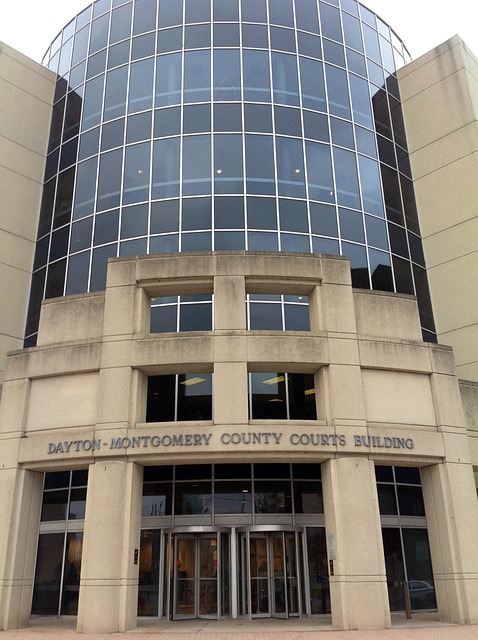Global criminal law frameworks balance social order and citizen protection through nuanced legal distinctions between class action and individual lawsuits. Class actions aggregate plaintiffs against large entities for common harm, achieving substantial damages. Individual lawsuits offer personalized justice for unique cases. Balancing these ensures effective victim remedies while maintaining fairness. Strategic choices impact prosecution outcomes, with plea deals or trials based on crime nature, parties, and desired outcome. Evidence handling differs: class actions face stringent scrutiny, while individual lawsuits apply broader standards. Maintaining integrity requires balancing individual rights protection and swift punishment to deter offenses. Legal experts navigate complexities to deliver justice respecting both individual rights and community well-being.
In the intricate web of criminal law enforcement, understanding the framework that governs proceedings is paramount. This article explores crucial aspects of modern justice, including strategic considerations in criminal prosecutions and the weight of evidence and legal precedent. We delve into the balance between due process and swift punishment, offering insights on rights and remedies through class action versus individual lawsuits. By navigating these complex dynamics, we aim to illuminate the path towards fair and effective law enforcement.
- Understanding Criminal Law Enforcement Frameworks
- Class Action vs Individual Suit: Rights and Remedies
- Strategic Considerations in Criminal Prosecutions
- The Impact of Evidence and Legal Precedent
- Balancing Justice: Due Process vs Swift Punishment
Understanding Criminal Law Enforcement Frameworks
Criminal law enforcement frameworks are complex structures designed to maintain social order and protect citizens from harm. At the heart of these systems lies a nuanced understanding of different legal approaches, such as distinguishing between class action lawsuits and individual lawsuits. Class action lawsuits involve multiple plaintiffs united in a common cause, often targeting large entities with widespread wrongdoing. In contrast, individual lawsuits focus on specific individuals’ grievances against particular defendants.
These frameworks vary globally, reflecting the unique cultural, philosophical, and political contexts of each nation. High-stakes cases—where the stakes are incredibly high—rely heavily on these structures, demanding an unprecedented track record of competence and integrity from law enforcement agencies. Moreover, the interplay between criminal law and broader social institutions, including philanthropic and political communities, shapes how these frameworks operate, ensuring they remain responsive to evolving societal needs.
Class Action vs Individual Suit: Rights and Remedies
In the realm of criminal law enforcement, the choice between a class action lawsuit and an individual lawsuit can significantly impact rights and remedies for victims. While a Class Action Lawsuit Vs Individual Lawsuit involves distinct approaches, both serve crucial purposes in holding wrongdoers accountable. Class actions are powerful tools when numerous individuals have suffered similar harm from a single course of conduct. They offer an unprecedented track record of collective justice, allowing for substantial compensatory damages and punitive measures that might otherwise be out of reach for individual plaintiffs.
On the other hand, individual lawsuits provide a more tailored and personalized approach. They can be beneficial when the harm is unique to each victim or when specific legal theories require individual prosecution. This avenue allows for greater control over the case, potentially avoiding indictment or other outcomes that might not align with the respective business’s liability. Balancing these options ensures that victims have access to effective remedies while maintaining a fair and balanced criminal justice system.
Strategic Considerations in Criminal Prosecutions
In the realm of criminal law enforcement, strategic considerations play a pivotal role in shaping the outcome of prosecutions. When contemplating legal actions, prosecutors and defense attorneys must weigh various factors to ensure a robust strategy. One key distinction that significantly impacts prosecution strategies is the choice between a class action lawsuit versus an individual lawsuit. In a class action, multiple plaintiffs unite against a common defendant, which can be advantageous for aggregating resources and amplifying claims. This approach may prove effective in securing substantial settlements or judgments, especially when addressing systemic issues or large-scale wrongdoings.
Conversely, individual lawsuits offer a more tailored strategy where each plaintiff’s unique circumstances are considered. This approach is particularly relevant in cases involving personal injuries, where damages may vary widely among victims. A general criminal defense strategy might involve negotiating plea deals to secure a complete dismissal of all charges for the accused, thereby mitigating potential consequences and avoiding lengthy jury trials. However, the decision between class and individual actions ultimately hinges on the nature of the crime, the number of affected parties, and the desired legal outcome.
The Impact of Evidence and Legal Precedent
In the realm of criminal law enforcement, evidence and legal precedent play a pivotal role in shaping outcomes for both general criminal defense attorneys representing corporate and individual clients, and the accused themselves. The strength and admissibility of evidence can significantly sway public perception and ultimately influence judicial decisions, making it a crucial aspect of any legal strategy. When it comes to distinguishing between a class action lawsuit and an individual lawsuit, understanding how evidence is handled and interpreted under various precedents becomes essential.
Class action lawsuits, which involve a large number of plaintiffs united by a common grievance against a single defendant, present unique challenges compared to individual lawsuits. Legal precedent in these cases often focuses on standing, causation, and damages, with judges scrutinizing the relevance and reliability of evidence to determine if it supports the collective claim. In contrast, individual lawsuits may have broader evidentiary standards, as each plaintiff’s case is assessed independently. This distinction underscores the importance of legal strategists navigating complex rules regarding the presentation and interpretation of evidence in both types of cases for their clients’ best interests.
Balancing Justice: Due Process vs Swift Punishment
In the pursuit of justice, a delicate balance must be struck between ensuring due process and administering swift punishment for criminal offenses. This equilibrium is essential to upholding the fairness and integrity of the legal system. On one hand, a robust general criminal defense mechanism guarantees that every accused individual receives a fair trial, protecting them from arbitrary or unjust punishments. This aspect is particularly crucial in safeguarding corporate and individual clients alike against potential Class Action Lawsuits, which can arise from perceived miscarriages of justice.
However, an equally vital consideration is the need for swift and effective punishment to deter future criminal activities. This balance requires a thoughtful approach that considers the specific circumstances of each case. Across the country, legal experts and policymakers are continually assessing these dynamics, ensuring that both due process and swift retribution are delivered in a manner that respects individual rights while maintaining societal order.
In the pursuit of justice, understanding the nuances of criminal law enforcement frameworks is paramount. The article has explored various facets, from the structural underpinnings to strategic considerations and the role of evidence in shaping outcomes. A key takeaway lies in the comparison between class action vs individual lawsuits, each offering distinct rights and remedies with profound implications for those involved. Balancing due process and swift punishment remains an intricate task, underscoring the importance of careful navigation in criminal prosecutions. This analysis highlights the complex interplay of factors that ultimately determine justice, ensuring a fair and effective legal system.






